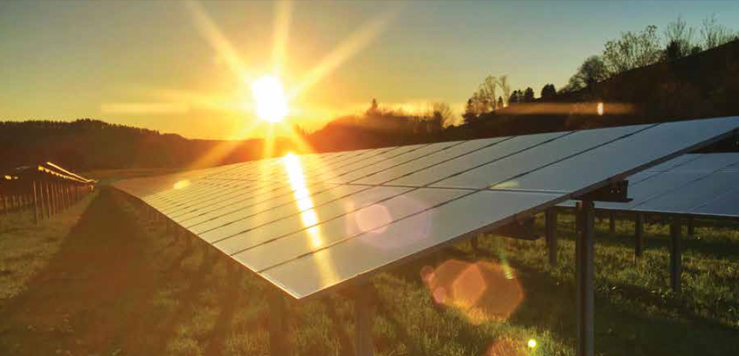
KEPCO intends to secure core technologies for carbon neutrality at an early stage by expanding R&D investment in energy efficiency, renewable energy generation, hydrogen and ammonia generation, and power grid technology, which have a high contribution to reducing greenhouse gas.
For this, we plan to double our R&D investment by 2030 and promote technological innovation throughout the power industry by strengthening joint research and demonstration with the government, private industry and academia.
For this, we plan to double our R&D investment by 2030 and promote technological innovation throughout the power industry by strengthening joint research and demonstration with the government, private industry and academia.
KEPCO has established its main technology development areas such as improving energy supply and consumption efficiency, expanding renewable energy to reduce carbon emissions, fuel conversion such as hydrogen and ammonia, and building an smart grid to distribute generated power to consumers.
- Leading Corbon neutrality
- Energy efficiency
- Reducing losses through distributed systems and high-effcienvy transmission and improving consumption efficiency of bulidings, industries, and transportation
- ① Sypply efficiency, ② Demand eggiciency
- Expanbsion of renewable energy
- Replacing coal and gas power generation through the use of renewable energy such as offshore wind power and hydroren energy
- ③ Offshore wind power, ④ Hydrogen energy
- Fuel conversion
- Reallzation of cabon free by applying CCUS to hydrogen and ammonia power generation and thermal power generation
- ⑤ Hydrogen-Ammonia power generation, ⑥ CCUS
- Building a intelligent grid
- Timely capacity of renewble energy in the power system by increasing hostying capacity of renewable energy and operating large-capacity ESS
- ⑦ Expanding capacity of Renewable Energy, ⑧ Large-scale Ess
1Energy efficiency
- (supply-side)Plans to build distributed energy systems such as microgrids and develop high-efficiency and low-loss technologies such as HVDC* and superconductivity to reduce power grid losses
- * High Voltage Direct Current
- (demand-side)Plans to continuously upgrade energy management systems, demand management, and V2G* technologies to improve consumption efficiency of industry, buildings, and transportation
- * Vehicle to Grid : Transferring the electric vehicle’s battery charged to the electrical grid
2Expansion of renewable energy
- (Offshore wind power)Plan to reduce LCOE* to KRW 150 per kWh by 2030, a level that reduces more than 40% compared to the current level by increasing power generation by enlarging turbines and developing large-scale complex construction and economical operation technologies
- * Levelized Cost of Electricity
- (hydrogen energy)Plan to improve green hydrogen production efficiency from the current 65% to over 80% by 2030 by focusing on developing water electrolysis technology that uses surplus power from renewable energy to electrolyze water.
3Fuel Conversion
- (Hydrogen ‧ Ammonia co-firing)Plan to demonstrate 20% ammonia co-firing by 2027 and develop 50% hydrogen co-firing technology by 2028, enabling the step-by-step expansion of hydrogen-based power generation
- (CCUS*)Plans to commercialize CCUS to 500MW for coal-fired power plants and 150MW for gas-fired power plants by 2030 to reduce carbon emissions during power generation and reduce capture costs to $30 per ton which is 50% of the current level
- * Carbon Capture Utilization and Storage
4Building a intelligent grid
- (Expanding capacity of Renewable Energy)In order to increase the capacity of renewable energy, plan to increase the accuracy of output prediction to over 95% and develop technology to artificially supply inertia using inverters, etc.
- (Large-scale ESS)plan to develop storage technology with over 80% storage efficiency and over 30 years of life and to build an intelligent grid to improve the stability and optimal operation of the power grid by securing short/mid/long-term ESS technology
KEPCO plans to strengthen open innovation by linking various external R&D efforts together, breaking away from the self-development for the urgent development of carbon-neutrality technology. KEPCO plans to play a pivotal role in technology development by introducing technologies that have been developed while introducing technologies that require a large budget by participating in KEPCO.